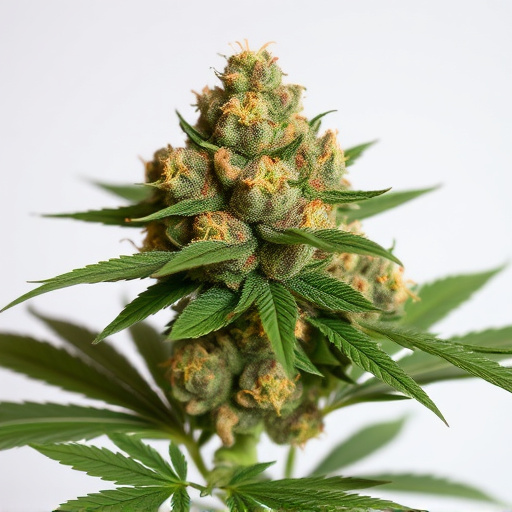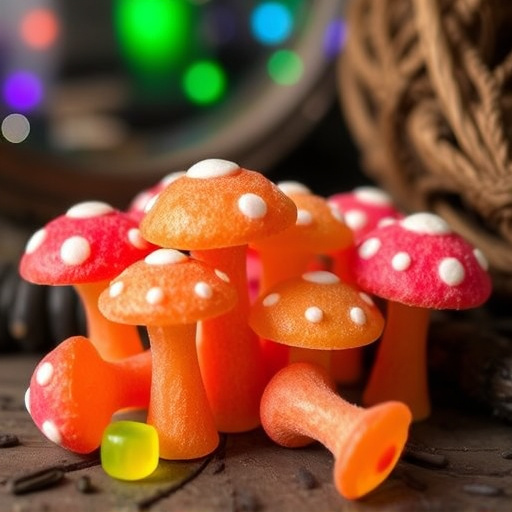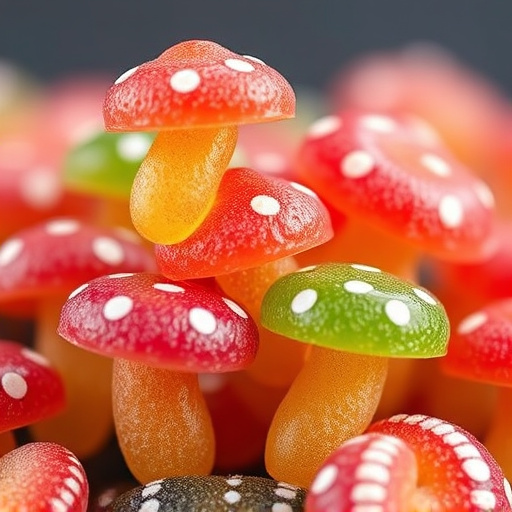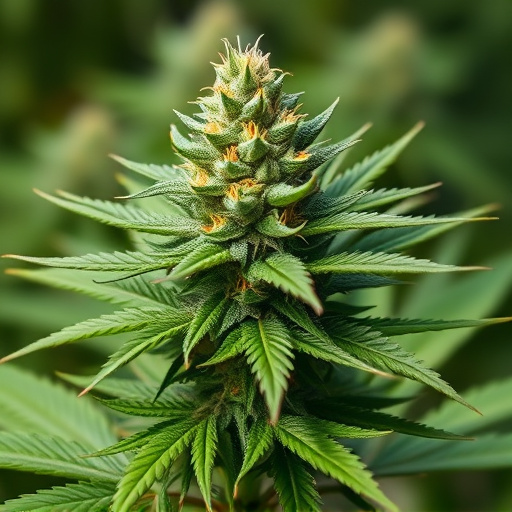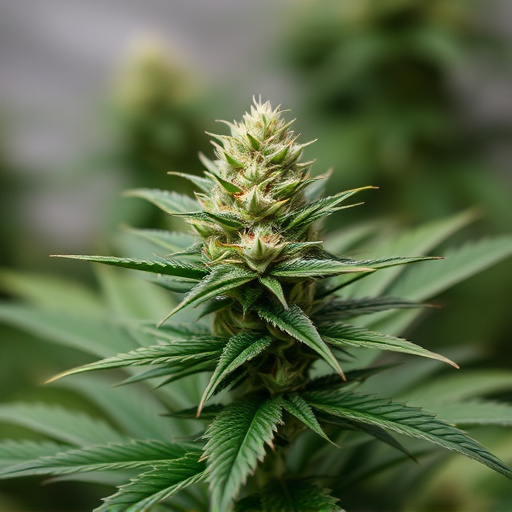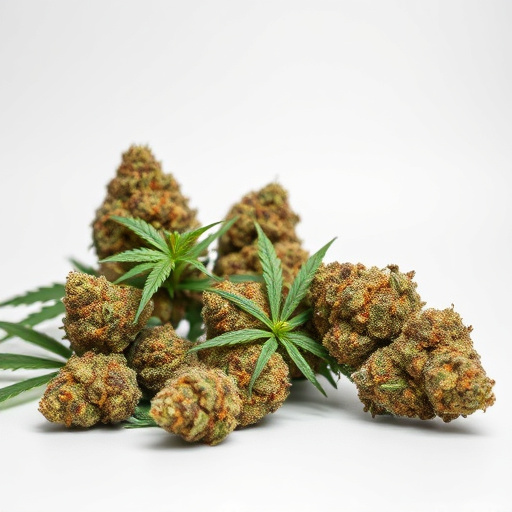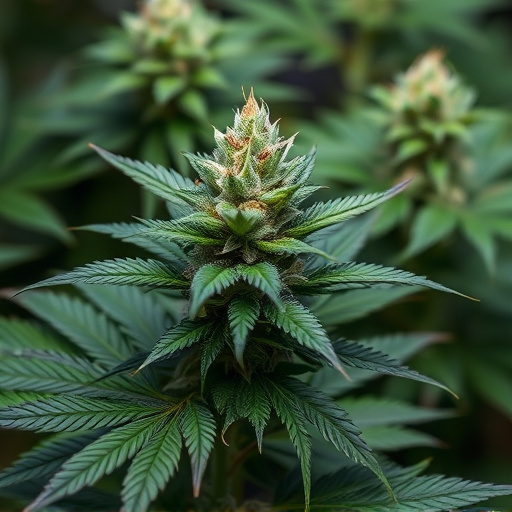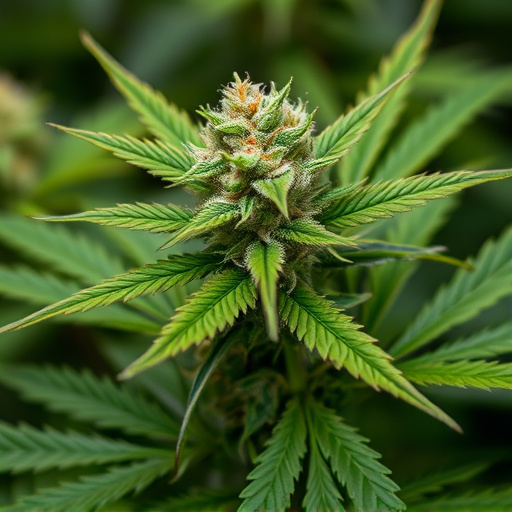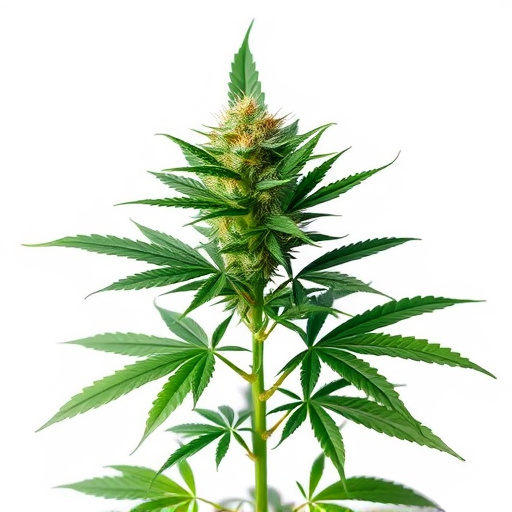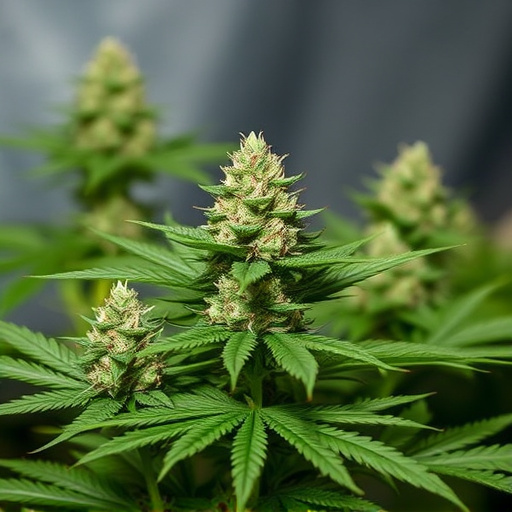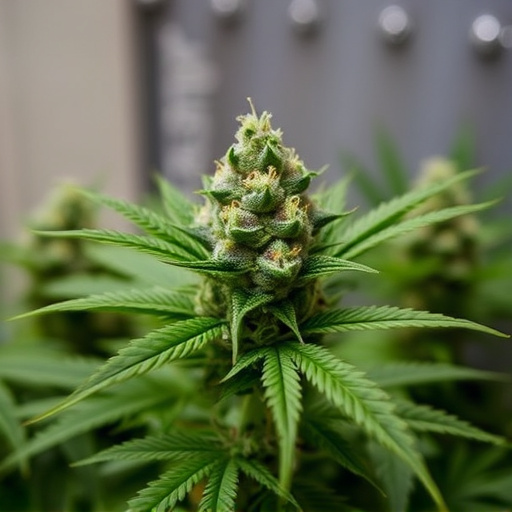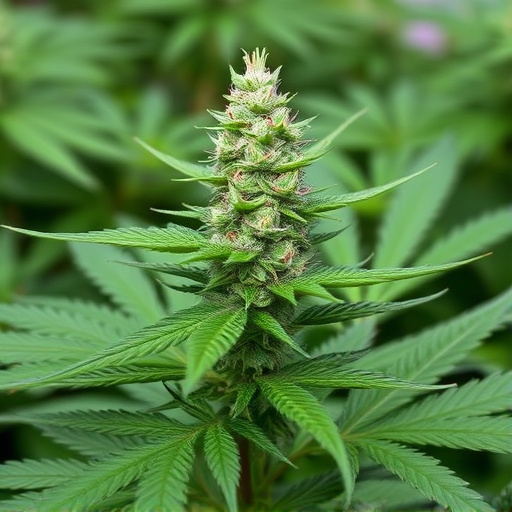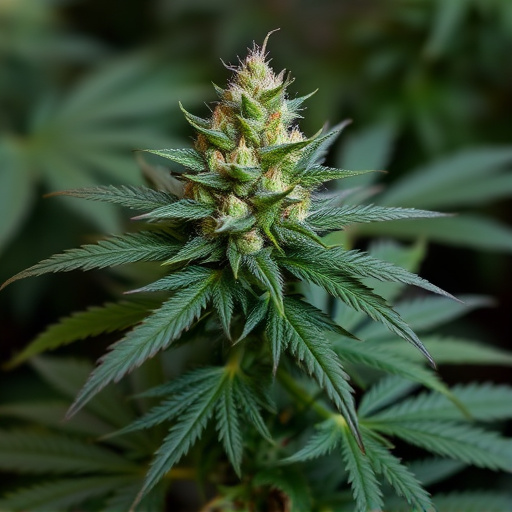Cannabis strains rich in cannabidiol (CBD) and low in tetrahydrocannabinol (THC) show promise as an alternative therapy for PTSD, offering relief from insomnia, flashbacks, and nightmares through their interaction with the endocannabinoid system. While CBD has anti-anxiety properties, THC's psychoactive effects should be considered; microdosing can help mitigate trauma triggers with heightened awareness. Finding the right strain involves individual adjustments based on dosage and response, emphasizing the need for consultation with healthcare professionals before treatment.
Exploring the relationship between cannabis flower and mood is a growing area of interest, especially regarding its potential as a therapeutic tool. This article delves into how different cannabis strains can affect emotions and offers insights into their application for managing PTSD symptoms. We’ll examine specific cannabis strains for PTSD, their beneficial properties, and the crucial factors of dosage and individual variation that determine a successful treatment approach. By understanding these aspects, you’ll gain a comprehensive view of navigating cannabis as a potential mood regulator.
- Understanding the Impact of Cannabis on Mood and Emotions
- Cannabis Strains for PTSD: Potential Benefits and Considerations
- Balancing Act: Navigating Dosage and Individual Differences
Understanding the Impact of Cannabis on Mood and Emotions
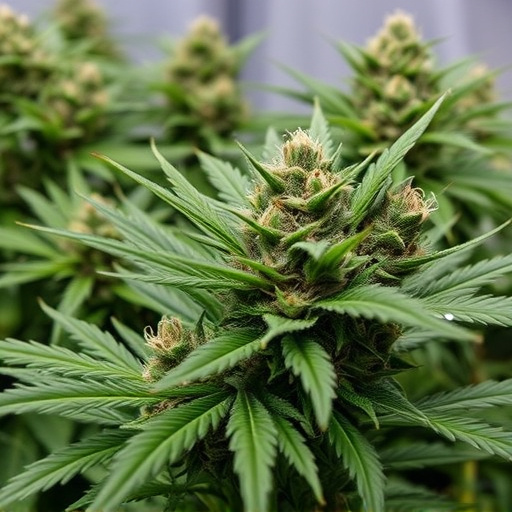
Cannabis has long been recognized for its potential therapeutic effects on mood and emotions, with specific strains gaining popularity for treating conditions like PTSD. Understanding how cannabis interacts with our bodies is key to unlocking its emotional benefits. The plant contains various chemical compounds, most notably tetrahydrocannabinol (THC) and cannabidiol (CBD), which bind to receptors in the brain and nervous system. THC is known for its psychoactive effects, influencing mood, memory, and perception, while CBD has gained attention for its potential anti-anxiety and calming properties.
For individuals with PTSD, certain cannabis strains high in CBD and low in THC can be particularly beneficial. CBD has been shown to interact with the endocannabinoid system, which plays a role in regulating mood, stress response, and emotional processing. By interacting with this system, CBD may help reduce anxiety, improve sleep, and mitigate flashbacks or nightmares associated with PTSD. Moreover, the calming effects of specific cannabis strains can provide much-needed relief from the heightened emotional states often experienced by those living with post-traumatic stress.
Cannabis Strains for PTSD: Potential Benefits and Considerations
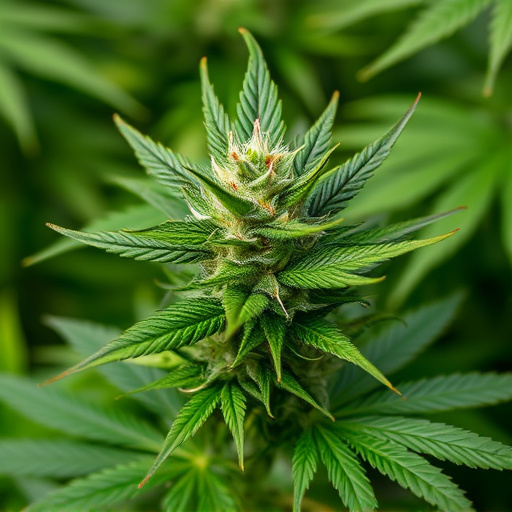
Cannabis has gained attention as a potential treatment option for Post-Traumatic Stress Disorder (PTSD), offering hope to those seeking alternative therapies. Several cannabis strains are renowned for their calming and therapeutic effects, which can be particularly beneficial for managing PTSD symptoms. These strains often contain high levels of cannabidiol (CBD) and low amounts of tetrahydrocannabinol (THC), as the latter compound is more associated with psychoactive effects that might trigger anxiety in some individuals with PTSD.
The potential benefits of cannabis strains for PTSD include their ability to induce relaxation, reduce insomnia, and alleviate flashbacks or nightmares. CBD, a non-psychoactive compound, has shown promise in controlling emotional responses and reducing the intensity of fear memories. However, it’s important to approach this treatment with caution and consult healthcare professionals before trying cannabis for medical purposes, as individual reactions may vary, and more research is needed to fully understand its effects on PTSD specifically.
Balancing Act: Navigating Dosage and Individual Differences
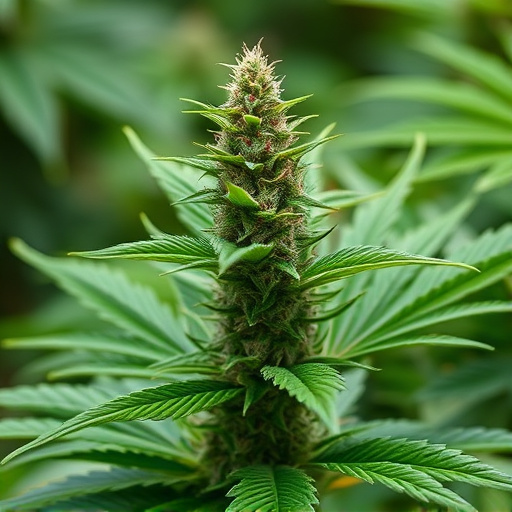
Cannabis’ impact on mood and emotions is a delicate balancing act, heavily influenced by dosage and individual differences. What works as a calming agent for one person might be overwhelming for another, especially when dealing with conditions like PTSD. Finding the right cannabis strain for PTSD involves careful consideration.
Different strains offer varying ratios of THC (tetrahydrocannabinol) and CBD (cannabidiol), each with its own effects on mood and anxiety. High-CBD strains are often sought after for their potential to reduce symptoms of anxiety and stress without inducing the intense high associated with THC. For PTSD, microdosing—ingesting extremely small amounts of THC—can be a strategy to mitigate trauma-related triggers while maintaining clarity and control. It’s crucial to start with low doses and gradually increase until the desired effect is achieved, always keeping in mind that everyone responds uniquely to cannabis.
In exploring how cannabis flower affects mood and emotions, particularly in the context of conditions like PTSD, it’s clear that specific cannabis strains offer potential therapeutic benefits. However, individual responses vary greatly due to a complex interplay of factors including biochemistry and personal tolerance. When considering cannabis strains for PTSD, it’s crucial to balance dosage meticulously and consult healthcare professionals for personalized guidance. Understanding these dynamics empowers individuals to navigate the complexities of cannabis use, harnessing its positive effects while mitigating risks associated with mood and emotional fluctuations.
